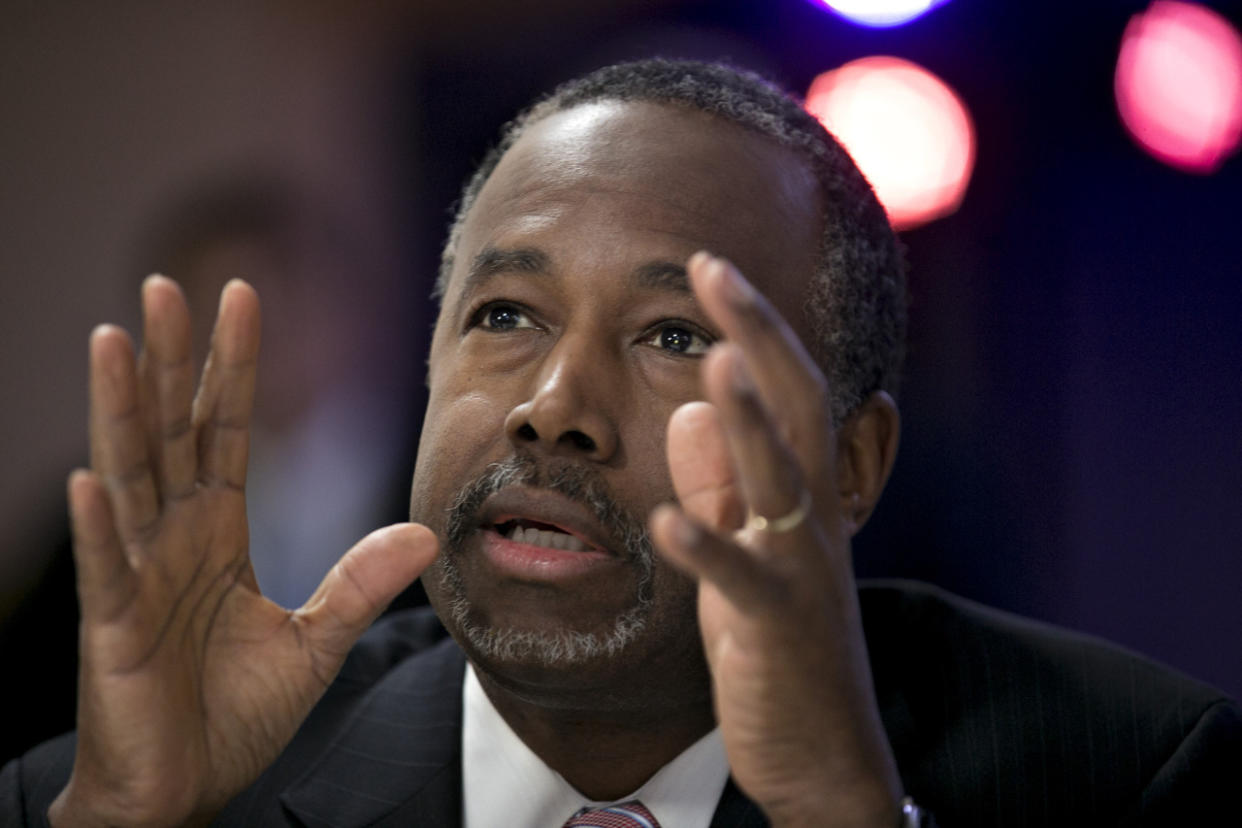Carson’s tales from the crypt: Double down on cybersecurity

(Photo: Andrew Harrer/Bloomberg via Getty Images)
DES MOINES, Iowa — Following his call for a new cybersecurity agency, Republican presidential candidate Ben Carson urged creation of a league of “encryption specialists” to address the growing digital threats to U.S. security.
During a Bloomberg Politics breakfast briefing hosted by Al Hunt here on Wednesday morning, Carson expanded on the proposal released by his campaign Monday to centralize cybersecurity efforts.
“One of the reasons that I have suggested the establishment of a national cybersecurity administration is so that we can begin to coordinate those efforts,” he said. “You have to recognize that cyberattacks is [sic] going to be the next form of weapons of mass destruction.”
When asked by Yahoo News if his plan to track digital threats required a total ban on encryption of online communications, Carson offered a vague response.
“I don’t necessarily think I want to ban encryption,” Carson said. “But we have some pretty talented people. Not only in the government but in the private sector. Encryption specialists. We need to be taking advantage of the broad swath of talent that we have in this country.”
Almost all cryptographers and privacy activists — people Carson might consider encryption specialists — believe that any government program to defeat encryption would compromise the privacy of innocent civilians.
Nate Cardozo, a staff lawyer at the Electronic Frontier Foundation, told Yahoo News in early December that calls to work alongside specialists are actually a strategy to undermine encryption.
“That dialogue happened in the ’90s,” he said. “And the answer now is the same as it was then. The lawmakers and the law enforcement side of this aren’t talking to the security experts and the academic cryptographers that they need to talk to.”
When asked if it’s necessary to expand the government’s reach by creating a whole new agency, Carson argued that our current digital defense efforts were unfocused.
“We have a whole ton of different cybersecurity entities in our government, disjointed,” he said. “That’s what makes us vulnerable. What we need to do is find a way to bring this all under one umbrella. With responsibility in one place. With the ability to leverage the knowledge. Both private and public knowledge in a way that protects us. That’s what it’s about.”
The last time Carson addressed the threat posed by the Internet, his concerns centered around nasty comments on articles and blog posts. He did not say if the new agency he is proposing would have jurisdiction over those.

